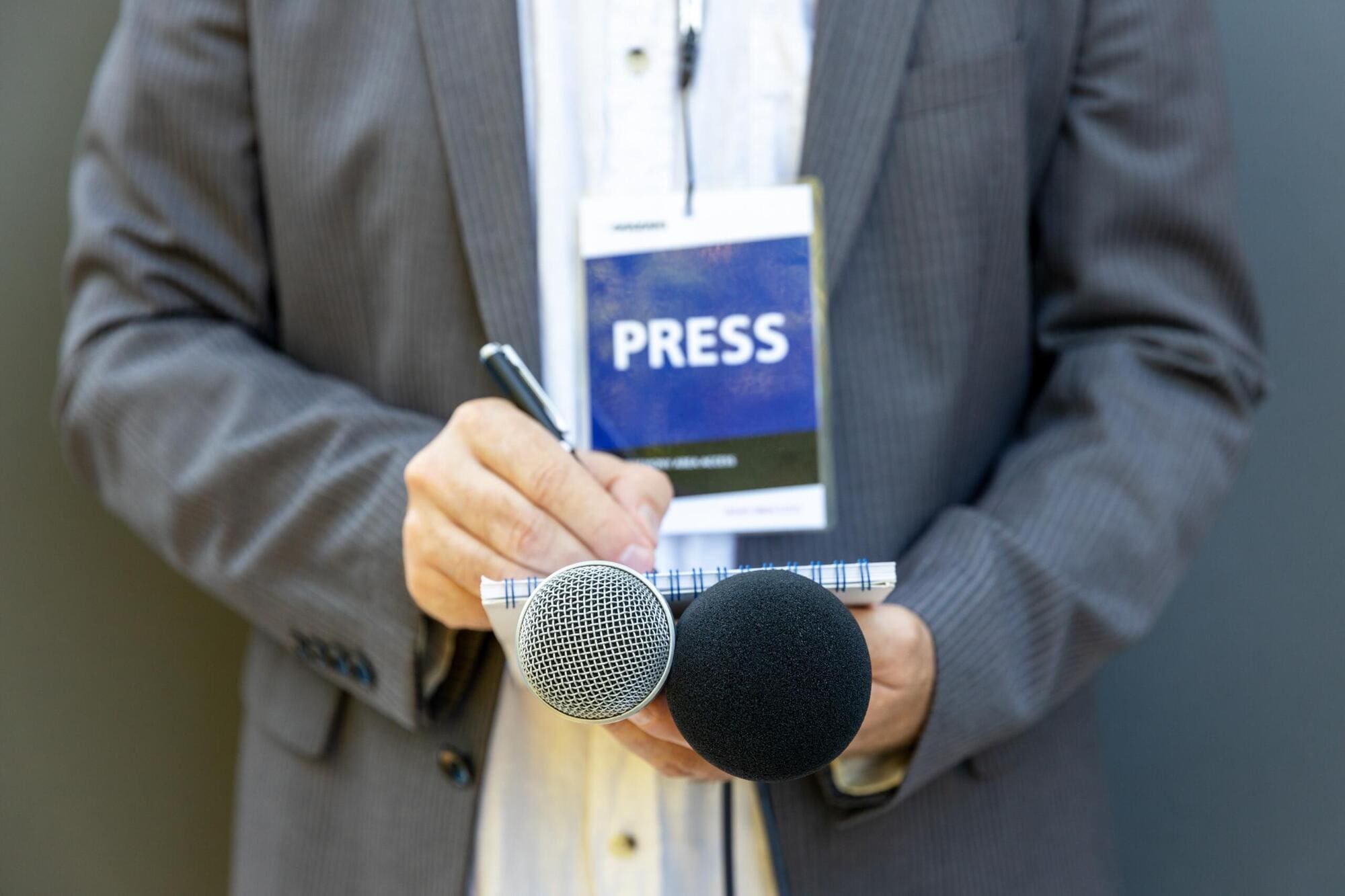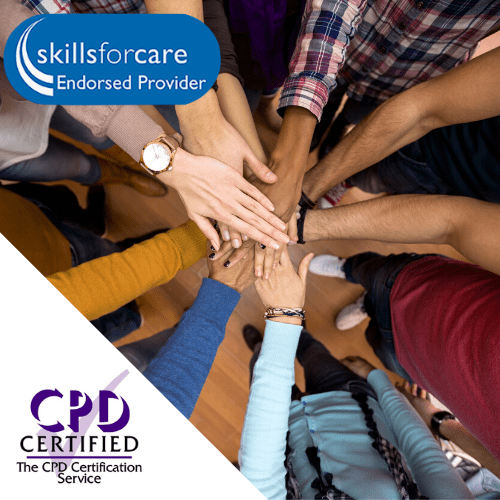In this Journalist Career Guide
What Does A Journalist Do?
A journalist is sometimes also known as a reporter or press officer. They gather information by researching, interviewing and investigating, and will then assemble their findings and present them as written news stories that will interest readers. Journalists have tight deadlines to meet, so being able to work under pressure is essential.
Journalists can specialise in different media types, e.g. newspapers, magazines, journals, television, radio and online. They can also focus on specific areas of journalism, such as current affairs, politics, sports and entertainment. They can write about local, regional, national and even international events. Therefore, what a journalist does will depend on who they work for and their specialisms and journalistic areas.
A journalist’s main aim is to write unbiased news stories with professionalism, accuracy and integrity. They will carry out many tasks, including researching and investigating, interviewing people, checking and verifying information, attending press conferences and events, networking and building contacts, etc. The role also involves a lot of administrative and computer work, e.g. taking notes and recording interviews, writing and uploading engaging articles and proofreading.
Journalists will work with many colleagues, including other journalists of different levels, editors, sub-editors, designers, photographers and news teams. They will also liaise with various external stakeholders, such as the general public, businesses, communities, the police, other emergency services, local authorities, government departments, press members, their contacts, etc.
Journalists can work for different-sized companies, from small publications to large organisations with hundreds or thousands of employees, e.g. large newspaper groups and national broadcasters. Most journalists are freelancers and can work for single or multiple publications. However, there may be some opportunities for individuals to be employed. Some recruitment agencies may also offer opportunities on a temporary or contract basis.

Responsibilities
A journalist’s responsibilities will depend on who they work for and their specialisms.
Some examples of common duties for journalists can include (this list is not exhaustive):
- Keeping up to date with privacy, copyright and defamation laws.
- Researching potential stories and coming up with new ideas.
- Reading press releases and other publications and monitoring social media.
- Investigating breaking stories and keeping up to date with what is going on.
- Conducting face-to-face, telephone or online conference call interviews with people.
- Recording interviews and meetings using shorthand or recording equipment, such as Dictaphones.
- Checking and verifying the information gathered is accurate to report the facts.
- Attending press conferences and asking questions.
- Networking and building contacts and following up on leads.
- Writing articles that engage readers that will appear in print and/or be uploaded on an online platform.
- Presenting the news on TV or radio (if in broadcasting).
- Sub-editing online/in-print articles from other reporters.
- Taking photographs or videos to go with stories or liaising with others with these responsibilities.
Journalists working for smaller publications and media companies may have more responsibilities than those working for large newspaper groups. In addition to writing stories, they may also take photographs and organise layouts.
Working Hours
A journalist’s hours are variable, and it is not usually a 9–5/Monday–Friday job, especially for those starting their careers. News can break at any time, so journalists can expect to work long and unsociable hours. They may be required to work early mornings, evenings, nights, weekends and bank holidays to meet deadlines.
There are different journalist roles, so there may be some flexibility. There are permanent, temporary, contract, full-time and part-time opportunities available. Many employers now offer remote or hybrid working. Therefore, individuals can do some of their work from home.
The role involves a significant amount of travel, i.e. local, regional or national, depending on the coverage. Overnight stays may be necessary and overseas travel may be required if journalists cover stories abroad.

What to Expect
There are many positives to being a journalist, especially if an individual loves researching, investigating and writing. Reporting the news and knowing your stories will be read by many people, especially if working for a well-known publication or broadcaster, can be exciting and fulfilling. Seeing your name next to an article and getting positive feedback from readers can be a real confidence boost.
Depending on the areas they cover, journalists can write important stories that highlight the plight of others. If it becomes viral, it can give worthy causes publicity and support, e.g. missing people and pets found, more money raised for charities and additional help given to those in need. Journalists can go home at the end of the working day knowing that their stories have made a significant difference to peoples’ lives and communities, which can be rewarding.
Boredom will not be an issue for journalists. Every story will be different, and they will meet and interview people from different backgrounds. They will travel a lot and attend exclusive events. No two days are the same in this role.
Even though there are positives to being a journalist, there are challenges and cons, e.g.:
- Noisy offices – most journalists will work in open-plan office environments, which can be loud and busy, making it difficult to concentrate. However, there will be opportunities to get out of the office, and some roles may offer homeworking.
- Mental demands – the role is fast-paced. Journalists will have to cope with a high workload, meet tight deadlines and produce highly accurate engaging articles, which can be stressful. The ability to multitask and be flexible is essential. There may be stories which can be hard to deal with, especially if there have been accidents, fatalities and serious injuries. Some journalists may see distressing and unpleasant scenes, which can be emotionally demanding.
- Physical demands – being a journalist can also be physically demanding, so they should have a good fitness level. There is a lot of travel (sometimes at short notice) and long working hours associated with the role. Journalists may also have to walk fair distances and be on their feet for long periods, sometimes in all weathers.
- Risks – journalists can face verbal and physical abuse from the public, especially when covering emotive stories. There can be a risk of injury and even death if covering stories in war zones, protests and riots.
- Low pay and competition – the salaries for entry-level journalists can be low compared to other careers. The competition for roles can also be fierce. There is also intense competition between rival publications. Therefore, journalists will need to stand out from the crowd and work hard to be successful in this career.
Every career choice has pros and cons, and individuals must know what to expect before deciding whether it is a suitable career. The role is physically and mentally demanding. There are risks of injury, and office environments can be noisy and distracting. However, there are many positives too, and individuals who become journalists love reporting the news.
When considering whether to be a journalist, individuals should look at the pros and cons. They should also ensure they have the right personal qualities to carry out the role and responsibilities required.
Personal Qualities Needed To Be A Journalist
Some of the personal qualities a journalist requires will include (this list is not exhaustive):
- The ability to use IT and software packages.
- A passion for news and current affairs.
- Knowledge of data protection, copyright, defamation and privacy legislation.
- Knowledge of media, publications and broadcasting.
- Knowledge of social media.
- Knowledge of the English language.
- Confident, assertive, determined, motivated, persistent and resilient.
- Honest, trustworthy and with integrity.
- Enthusiastic and with stamina.
- Ambitious with a willingness to succeed.
- Excellent grammar, spelling and punctuation.
- Excellent communication skills, both written and verbal.
- Problem-solving skills.
- Negotiation skills.
- Conflict management skills.
- Interpersonal skills.
- Research and investigative skills.
- Organisational and time management skills.
- Being thorough, accurate and having excellent attention to detail.
- The ability to ask difficult and awkward questions.
- The ability to develop and maintain relationships.
- The ability to accept criticism.
- The ability to work well with others and alone using own initiative.
- The ability to present complex information simply and concisely.
- The ability to work quickly and efficiently, prioritise different demands, multitask and meet tight deadlines.
- The ability to work under pressure and remain calm in stressful situations.
- The ability to be flexible and adapt to change.
Qualifications
There are many different routes to becoming a journalist. Individuals could go to university or college, enrol on a course with a private training provider, apply for an apprenticeship or apply directly to companies. They could also do work experience to help them enter the role.
University
An individual does not need a degree to become a journalist. However, having an undergraduate or postgraduate degree can help individuals stand out from the crowd.
Many companies are now asking for relevant degrees, such as (this list is not exhaustive):
- BA (Hons) Journalism.
- BA (Hons) Journalism and Media.
- BA (Hons) Journalism, Media and Culture.
- BA (Hons) Journalism and Communications.
- PgDip/MA Journalism.
- MA Media and Journalism.
Other relevant topics may include English, economics, languages, sciences and creative writing.
It is better if courses are accredited, e.g. by the National Council for the Training of Journalists (NCTJ) or the Professional Publishers Association (PPA)..
The entry requirements will depend on each university, and individuals should check before applying. They will typically need two/three good A Levels for an undergraduate degree or a certain number of UCAS points to get into university. Postgraduate degrees usually require a 2:1 or 2:2 in a relevant undergraduate degree. Some institutions also invite applicants for an interview as part of the selection process.
College/private training
Undertaking a college or private training course can help individuals become a journalist.
Some examples of courses are as follows (this list is not exhaustive):
- Level 2 TV & Film and Journalism (Digital Media).
- Level 2 Diploma in Media and Journalism.
- Level 3 Diploma in Journalism.
- Level 3 Diploma in Multimedia Journalism.
- Level 3 Certificate in Foundation Journalism (NCTJ accredited).
- HND Practical Journalism.
Individuals usually need:
- Level 2 – two or more GCSEs at grades 9 to 3 (A* to D), or equivalent.
- Level 3 – four or five GCSEs at grades 9 to 4 (A* to C) or equivalent.
- HND – at least one A Level and some GCSEs, including English.
Always check the entry requirements before applying.
Individuals are not guaranteed success with courses and qualifications. However, it will demonstrate to employers and companies that they are keen on the job and may give individuals a competitive edge.
Apprenticeships
There is an apprenticeship route to help individuals become a journalist, e.g.:
- Level 5 journalist – equivalent to a higher national diploma (HND).
- Level 7 senior journalist – equivalent to a master’s degree.
The entry requirements for each apprenticeship will depend on individual employers. Individuals should check before applying.
Opportunities are found on Government’s Apprenticeships, Institute for Apprenticeships and Technical Education, Journo Resources and Indeed. Individual companies may also advertise apprenticeships on their websites, e.g. ITN Apprenticeships and BBC Careers.
Applying directly
Some organisations offer trainee or internship roles where they will train individuals on the job and may pay for them to do journalism qualifications.
It can be a good route for those struggling to pay for courses, as they can sometimes be expensive. Individuals will still need a good education and demonstrate a passion for journalism. Most job sites advertise trainee roles and internships.

Work Experience
As there is a lot of competition for roles, individuals must undertake relevant work experience (either paid or voluntary) and showcase their writing skills. Individuals could apply for office assistant roles where they could help and shadow journalists. Alternatively, there may be an opportunity to work as a trainee for local and regional newspapers or other publications. Qualifications will usually be necessary for these types of roles.
There may be volunteer opportunities where individuals could gain writing experience and help build their portfolios. They could write articles for student and community newspapers, local publications and websites or produce a blog/vlog. Charities and community schemes may need volunteers to write articles, provide copyrighting, help with social media, etc. There may also be options to volunteer for local newspapers and radio stations. There is information on volunteering and local opportunities on Do-IT, NCVO, Volunteering Matters and Indeed.
Any work experience relevant to writing and journalism can be beneficial and help an individual work towards becoming a journalist. Even community courses can help, e.g. creative writing, photography and digital skills.

Training Courses
Learning does not stop with experience or once someone becomes qualified. Attending relevant training courses and having additional certifications can help individuals enter the profession, enhance their employability and give them a competitive edge. Many colleges and accredited private training providers can provide relevant training courses.
Some examples of courses that may be useful for journalists include (this list is not exhaustive):
- Office health and safety.
- Display screen equipment (DSE).
- Work-related stress.
- Work-related violence.
- COVID-19 awareness.
- Equality and diversity.
- Minute taking.
- LGBTQ+ awareness.
- Disability awareness.
- Anti-bribery awareness.
- Conflict management.
- Resilience training.
- Data protection and GDPR.
- Customer service skills.
- Time management skills.
There are also courses relating to journalism that individuals may find useful, such as:
- Media law.
- Interviewing skills.
- Editing skills.
- Public relations.
- Feature writing.
- Digital journalism.
- Data journalism.
- Shorthand.
- Blogging.
Professional bodies, councils, unions and associations, such as the National Council for the Training of Journalists (NCTJ), the National Union of Journalists (NUJ), the Chartered Institute of Journalists (CIOJ), the Broadcast Journalism Training Council (BJTC), the British Association of Journalists (BAJ), the National Association of Press Agencies (NAPA) and others, can also advise on reputable training courses. Some also provide memberships, events and support to help individuals become journalists and give those already in the profession the means to continue their professional development.
The type of training required will depend on who an individual works for and their specialisms. It is worth looking at several job advertisements to identify the training needed for roles. Jobs can be found on websites such as GOV.UK find a job service, Indeed, LinkedIn, Glassdoor, journalismjobs.co.uk, journoresources.org.uk, NCTJ Jobs Board, Cision Jobs, journalism.co.uk and Jobs4Journalists. . Also, look at recruitment agencies and UK newspaper websites for journalism roles.
More relevant training and competence (skills, experience and knowledge) will open up more opportunities. Refresher training is also advisable as it is a legal requirement and keeps an individual’s knowledge and skills up to date.
Criminal records checks
Journalists may need to undergo a criminal record check.
The organisation that holds criminal records will depend on the country within the UK, for example:
- England and Wales – Disclosure and Barring Service (DBS).
- Northern Ireland – AccessNI.
- Scotland – Protecting Vulnerable Groups (PVG) scheme.
Driving
As journalists travel frequently, they will typically need a full driving licence (preferably with no points). Some roles will provide a company vehicle, but others may require individuals to use their own, which must have business insurance.

Where Do Journalists Work?
Most journalists will be freelance, but employed/agency roles are available.
Some examples of the companies they can work for include (this list is not exhaustive):
- Newspapers.
- Magazines.
- Publishers.
- Press agencies.
- Content agencies.
- Digital media companies.
- Websites.
- News wires.
- Radio stations.
- Public and private television broadcasters.
- Fashion houses.
Journalists will predominately work in an office and travel to different sites. There may also be options to work from home.
Jobs are available nationally. There may also be opportunities to work overseas.

How Much Do Journalists Earn?
What a journalist earns will depend on their role, specialisms, location, qualifications, experience, who they work for and whether they are employed, agency or freelance.
Some examples of average salaries include (these figures are a guide only):
- Entry-level (less than 1 year experience) – £20,278 a year.
- Early career (1–4 years of experience) – £23,387 a year.
- Mid-career (5–9 years of experience) – £31,820 a year.
- Experienced (10–19 years of experience) – £34,734 a year.
- Late career (20 years and higher) – £39,905 a year.
Individuals just starting a career in journalism as a trainee are likely to earn less, i.e. approximately £12,000–£15,000 (data from various sites).
As an apprentice, the salary will depend on an individual’s age and how long they have been in their apprenticeship. Apprentices must earn at least the current National Minimum Wage (NMW). Some employers will pay more than this. However, it will depend on the organisation and role on offer.

Types Of Journalism To Specialise In
There are different roles within journalism, such as:
- Editor – has overall responsibility for what is published and is the final decision maker.
- Reporter – researches, investigates, gathers information and writes the stories. General reporters will cover many news stories, whereas other reporters may specialise in certain areas, such as politics or sports.
- Feature writer – has a similar role to a reporter but will cover topics more in depth, and their articles tend to be longer.
- News editor – manages news journalists and decides who will do what work and the stories covered. They also check copies for any legal or ethical issues.
- Sub-editor – checks copies submitted by reporters to ensure they read well and the spelling, grammar and facts are correct. They also edit them to fit the publication design, layout and word limit.
- Presenter or news anchor – will present the news on the radio or television, usually live. They may read off an autocue and interview guests.
- Producer – oversees the making of a TV or radio programme and coordinates the content.
- Correspondent – is an on-the-scene reporter specialising in one subject, area or location, e.g. Science Correspondent, Washington Correspondent and Royal Correspondent.
In smaller companies, journalists may have to do several of the above roles.
There are many different types of journalism in which journalists can specialise, for example (this list is not exhaustive):
- Newspaper journalism – working for local, regional and national newspapers and reporting on numerous current daily events.
- Broadcast journalism – like news journalism, broadcast journalists research and present current daily news and programmes but will report the content on broadcast media platforms, such as radio, television and websites.
- Investigative journalism – journalists are also known as investigative reporters and spend more time researching and investigating single events or topics, e.g. political corruption, crimes and other wrongdoings. They have an important role in holding those in power to account.
- Data journalism – finding trends in data to create, explain or elevate a news story.
- Digital (online) journalism – distributing various news content on the internet.
- Magazine journalism – researching and writing articles and in-depth features for magazines.
- Column journalism – journalists are also known as columnists. They produce opinion pieces in newspapers, magazines and online.
- Multimedia journalism – researching and writing articles and features for two or more types of media, e.g. written, broadcast and photojournalism.
- Photojournalism – using photos and videos to report news events in newspapers, magazines, television, radio and online.
There are also opportunities to specialise in specific subjects, such as (this list is not exhaustive):
- Fashion journalism.
- Celebrity journalism.
- Sports journalism.
- Social media journalism.
- Political journalism.
- Entertainment journalism.
- Business journalism.
- Arts and culture journalism.
- Science journalism.
Various journalistic roles will require differing knowledge, skills, experience and qualities. All journalists must have excellent research, investigation, communication and writing skills and be able to write engaging, accurate articles to tight deadlines. Any additional areas of expertise will depend on what an organisation is looking for and the type of journalistic role an individual wants. Further qualifications and experience may be necessary for specialised jobs, e.g. broadcast journalism.
Journalists not competently carrying out their roles can result in inaccurate news stories, which can harm people’s and companies’ reputations. In worse cases, incorrect reporting can increase abuse, especially online. It can also lead to breaches in media, copyright and data protection laws, which may result in prosecutions and civil lawsuits. Therefore, whatever the type of role, journalists must have the necessary competence to carry out the work professionally. They should also know the limits of their competency, i.e. asking for help when something is beyond their expertise.

Professional Bodies
Standards, new stories, laws and technologies are regularly changing. Therefore, journalists must keep abreast with the latest developments and changes to ensure they carry out their roles effectively and correctly. Continuing professional development (CPD) gives journalists the knowledge and skills to keep up to date with these changes, understand their responsibilities, be legally compliant and progress in their careers.
Joining a professional body, council, union or association, such as the National Council for the Training of Journalists (NCTJ), the National Union of Journalists (NUJ), the Chartered Institute of Journalists (CIOJ), the Broadcast Journalism Training Council (BJTC), the British Association of Journalists (BAJ), the National Association of Press Agencies (NAPA) and others, can help individuals enhance their skills and overall career. They offer different levels of membership, CPD, support, access to industry contacts and networking events.
There is ample opportunity for career progression for journalists. With more qualifications and experience, they can become a senior journalist, specialist writer or chief reporter and/or specialise in journalistic areas, e.g. current affairs, sports or politics. Alternatively, they may move to different types of journalism, such as broadcast or investigative.
Knowledge, skills and experience from being a journalist can also lead to a career in different areas. For example, they could go into teaching journalism at college or university. They may decide to move into other areas, such as public relations, or become a critic.

















